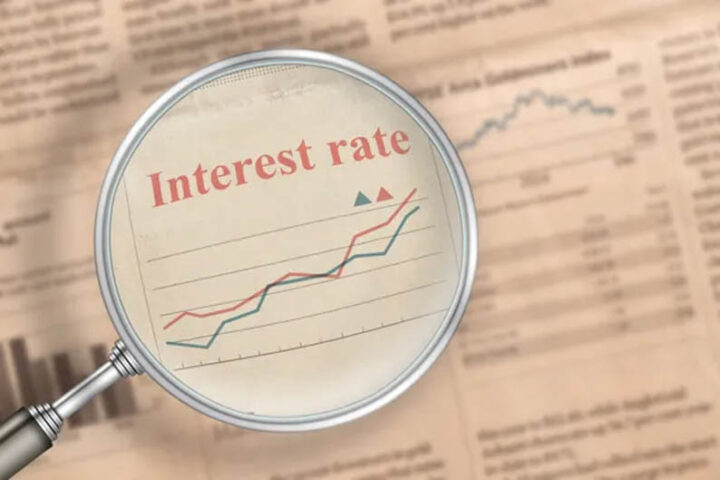By Craig Erlam
Equity markets nudged higher at the end of the week after suffering losses on Thursday earlier, as the consolidation phase continues.
This continues to be a very headline-driven market and they’re coming thick and fast.
Talks between Ukraine and Russia seem to be progressing well, but things can change rapidly, for better or worse. Until we see a deal, the situation will continue to feel precariously balanced and investors will remain on edge.
Claims of a Ukrainian attack on a fuel depot in Belgorod, where further explosions have recently been reported, may ignite further tensions if proven to be accurate. Not that Russia itself has lowered the intensity of its attacks in Ukraine since the negotiations began, of course.
Naturally, the Kremlin won’t let hypocrisy stand in the way if it wants to escalate the crisis once more. Interestingly, Ukraine is yet to confirm responsibility for the attacks.
Eurozone inflation pressure on ECB
Inflation in the eurozone hit another all-time high in March, jumping to 7.5% from 5.9% in February.
Energy prices are strongly behind the move which isn’t going to change any time soon, although price pressures are becoming a little more widespread. The core reading only rose to 3% though, up from 2.7%, which is still way above the ECB’s 2% inflation target.
The central bank continues to swim against the tide when it comes to inflation and despite a major shift at the last meeting, continues to be far less hawkish than the markets. Friday’s data will make life even harder for the ECB, which may start to move more in line with market pricing of 40-50 basis points of hikes by year-end if this continues.
Another strong jobs report
The US jobs report was once again quite strong, even if the headline NFP fell a little short of expectations. The creation of 431,000 jobs is still extremely good at a time when unemployment is falling to 3.6%, which surpassed expectations.
Throw into the mix higher participation which the Fed will no doubt be pleased to see as this is one thing that can alleviate some of those wage pressures and it’s hard to find fault with the report.
As it is, wages are still rising strongly at 5.6%, somewhat offsetting the inflation drag. This means plenty of rate hikes this year and probably more chance of one or two super-sized, the first of which is now heavily priced in for May.
Oil falls below $100
Oil prices continued to fall Friday, as the IEA announces a coordinated SPR release following President Biden’s decision earlier in the week. Unlike the previous two occasions, markets have responded favourably to the latest release, which is by far the largest ever from US reserves.
The timing nicely coincides with the run-up to the midterms as well which, I’m sure, is merely a coincidence. Whether it has a significant impact will depend on the situation in Ukraine.
One thing it will do is increase OPEC+ resistance to boosting output, not that it has shown any ability to even deliver 400,000 barrels per day increases in recent months.
Compliance increased to 151% in March, from 136% in February, meaning its new slightly higher targets will simply increase the amount in which it will likely fall short in May. At least the group isn’t being political in its decision making…
Gold eases lower
Gold was a little lower at the end of the week, with the US jobs report weighing a little as the dollar strengthened.
It doesn’t really change much as far as the yellow metal is concerned as it remains range-bound, comfortably above $1,900 and seemingly going nowhere fast. Traders are happy to hold on but in no rush to buy, it seems.
Bitcoin fails to capitalise on breakout
Bitcoin accelerated moves to the downside on Thursday and Friday as it wiped out all of Monday’s breakout gains. It now finds itself back below $45,000, albeit still in a fairly healthy position.
The cryptocurrency rallied almost 20% from its March 21 lows, but rather than capitalise on its break above $45,500 it appears to have induced some profit-taking. It slipped almost 10% from Monday’s highs, so it will be interesting to see if traders are ready to pile back in or if they have no faith in the breakout.
Craig Erlam is Senior Market Analyst, UK & EMEA at OANDA
Opinions are the author’s, not necessarily that of OANDA Global Corporation or any of its affiliates, subsidiaries, officers or directors. Leveraged trading is high risk and not suitable for all. Losses can exceed investments.









